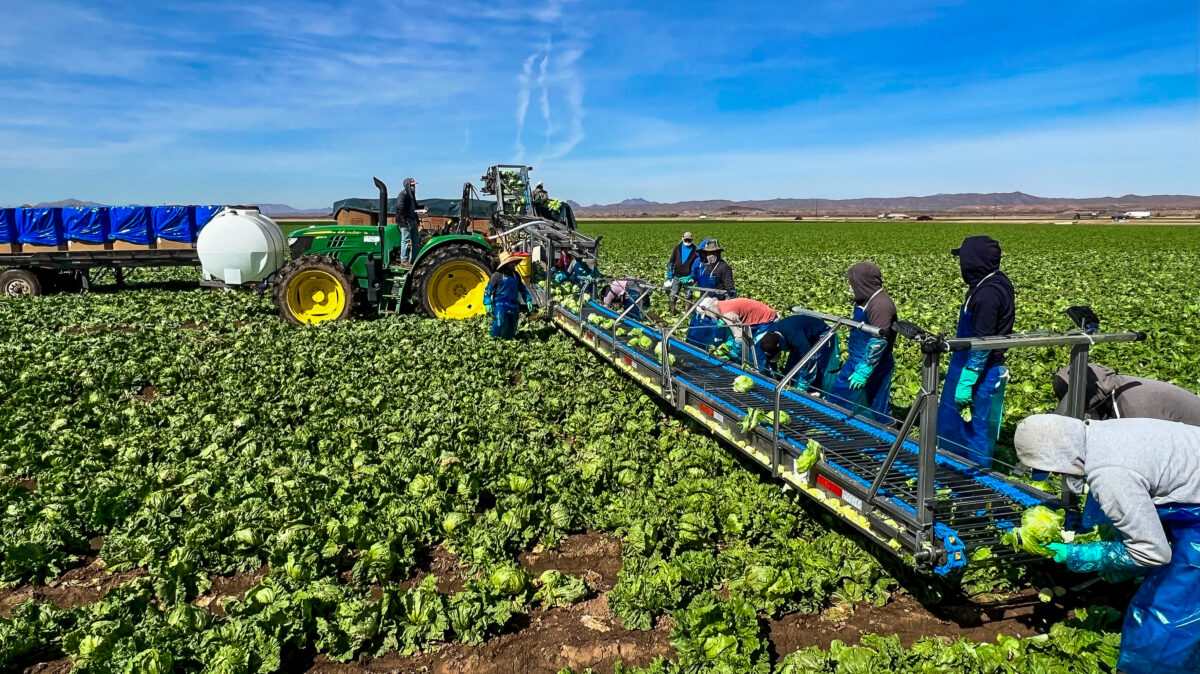Farm Labor Shortage Affects More Than U.S.
Guest Author
Special Contributor to FB.org

photo credit: AFBF Photo, Terri Moore
Guest Author
Special Contributor to FB.org
By Stewart Truelsen
A common worry among farmers in California, Florida, Texas, Michigan and elsewhere is that they won’t have enough migrant labor for their fruit and vegetable harvests. Some years they are downright desperate for help. Worse yet, the future of migrant labor is uncertain because immigration law needs reform.
Farmers used to be criticized for not hiring the unemployed. This isn’t so much the case anymore. The public has come to understand that farmers have tried with little or no success. Americans enjoy eating strawberries, blueberries, cucumbers and tomatoes; they just don’t want to pick them … unless it’s for an hour or two at a U-pick farm.
Come to find out this is not an American phenomenon. Other countries like Australia and New Zealand are having the same problem. New Zealand started its kiwifruit harvest in April and needed thousands of seasonal workers. It will get most of them from neighboring Pacific islands.
Before he resigned in December, Prime Minister John Key was asked to explain why unemployed Kiwis (as New Zealanders call themselves) can’t be enlisted to harvest crops and do other work that is falling to immigrants, migrants and even tourists.
In remarks on Radio New Zealand, Key said, “Go and ask the employers, and they will say some of these people won’t pass a drug test, some of these people won’t turn up for work, some of these people will claim to have health issues later on.”
In New Zealand, the unemployed are referred to as “beneficiaries,” and farmers have found them to be unreliable and unskilled when it comes to any kind of farm work. They seem to have better luck with backpackers who trek through New Zealand and like to make a little money along the way.
One opposition leader who disagreed with the prime minister admitted that some of the local prospects had rough edges and found outdoor work too rigorous. He wanted the government and farm employers to go the extra mile to shape them up—a sort of basic training on the farm, perhaps?
The difficulty in finding locally sourced farm labor was confirmed in a United Nations study of migrant workers in commercial agriculture. It concluded that the share of international migrants in the farm workforce is rising in most industrialized countries and many middle-income developing countries. The report said that international migrants or guest workers provide vital skills and labor to agriculture. In return, they receive jobs and wages that are better than what they can find at home.
The UN report also said that farm labor shortages are not being met by labor-saving technology or food imports. It is a misconception to think that mechanization can replace most farm workers. Certain farm jobs like tending livestock, pruning vines and trees and picking fresh produce require a human touch.
Reforms to the U.S. immigration system are needed to ensure that American agriculture has a legal, stable supply of workers. Instability in the farm labor force can cost American farmers and consumers billions of dollars in lost crops and higher food prices. It can also put our farmers at a competitive disadvantage with countries that move faster to deal with a similar labor problem.
Stewart Truelsen
Freelance writer
Stewart Truelsen is a food and agriculture freelance writer and a regular contributor to the Focus on Agriculture series.